 The other day I was talking with a friend who was sounding off about the lack of team work that he was experiencing and the 'every person for themselves' culture. I asked him how often they have a leadership team meeting at his company. "About every six to eight months," he said. with a sense of frustration.
The other day I was talking with a friend who was sounding off about the lack of team work that he was experiencing and the 'every person for themselves' culture. I asked him how often they have a leadership team meeting at his company. "About every six to eight months," he said. with a sense of frustration.This conversation about the dsyfunctional work environment coincided with my reading of Rudolph Giuliani's superb book entitled Leadership. Here is his description and reflection on his team meetings when he was mayor of New York:
"Every morning, at exactly eight o'clock, I make my mother very happy. Throughout my childhood, she would lecture me on the virtues of finishing my schoolwork before I went outside to play. It used up a lot of daylight, which always annoyed me, but as with almost everything she taught me, she turned out to be right."
"That's why I've begun every single morning since 1981 with a meeting of my top staff. The importance of the "morning meeting" cannot be overstated. In all my time as mayor, I missed very few such meetings, and then only when another commitment absolutely prevented my attendance. I consider it the cornerstone to efficient functioning within any system, especially a complex one."
"When I became mayor, I realized that the job could overwhelm me. Without a system for processing the day's challenges, the sheer number of issues needing my attention could easily have dictated the agenda. The main purpose of the morning meeting was to get control of the day and prevent that from happening. We could accomplish a great deal during that first hour, in large part because the lines of communication were so clear. The people who needed to reach me-like the members of any large organization who need to convey information to the chief executive-knew that their concerns could be funneled in an orderly way through their representatives at the meeting; and I could ensure that my deputies and commissioners were working off the same page and could carry a coherent message back to their staffs."
"Paul Crotty, my first Corporation Counsel, knew Mayor Wagner, Mayor Lindsay, and Mayor Beanie, and had worked for Mayor Koch before working in my administration. According to Paul, ours was the only administration that got all the commissioners to speak with one voice. He attributed that to the eight o'clock meeting. He once recounted how, in the Koch administration, a number of commissioners thought that they were empowered to make their own policy statements. After the budget was adopted, certain commissioners would go to the media during the City Council review process in an attempt to raise their department's budget, saying, "Well, if you give me some more money I can do such and such ..." In my administration, commissioners did their bargaining with the Office of Management and Budget. They could always appeal to me, but I wanted disputes settled within the family, not in the press."
"Early in my first term, some staff would try to skirt the scrutiny of other members of the administration by approaching me in private. It was one thing to have your initiative shot down by the mayor, quite another to have your peers suggesting a reason why a pet idea might not work, or a better way to go about it. Those suggestions and debunkings were often best for the city, though, and thus worth hearing. I insisted that all such plans be brought up at the morning meeting. More often than not, the others there had valuable information to contribute and could enhance the plan's chances of gaining my approval."
"The only exception to the rule about skirting the group and bringing matters directly to my attention was Denny Young, officially "Counsel to the Mayor." At every morning meeting, when his turn round the table arrived, Denny would intone the same comment, "I'll talk to you later." He performed a function different from anyone else at the table; rather than managing his own portfolio of agencies and advocating for budgets and projects, he had a single concern: protecting all of us."
"The idea was to get as much work as possible out of the way in the first hour of the day. As mayor-as with the head of any large organization-I had many people trying to reach me. I may have had thousands of employees and millions of constituents, but I had to communicate with them. Obviously, I couldn't do that directly. What I tried to do was to have at the meeting the staff through whom I could communicate to all of those people, or through whom they could communicate to me."
"Here's how the morning meeting worked. At eight o'clock, my top staff-between fifteen and twenty people-convened around a table, ready to discuss the events of the day before and to plan for the one ahead. For forty-five to ninety minutes, we proceeded clockwise around the table, each participant sharing any pertinent news regarding the departments or agencies they represented."
Source: Rudolph W Giuliani with Ken Kurso, Leadership, (London: Time Warner, 2002), 29-30.
Image: Book cover and photo of Giuliani.
 In England at the commencement of the 15th century there was a priory where monks and nuns would take refuge and pray. They were part of the Order of the Star of Bethlehem, so the Christ child and the obedient faith of Mary became the focus of their tradition.
In England at the commencement of the 15th century there was a priory where monks and nuns would take refuge and pray. They were part of the Order of the Star of Bethlehem, so the Christ child and the obedient faith of Mary became the focus of their tradition.


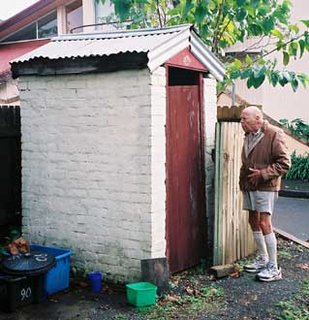 Beware of the new trends in home furnishing that have just been announced in the USA.
Beware of the new trends in home furnishing that have just been announced in the USA.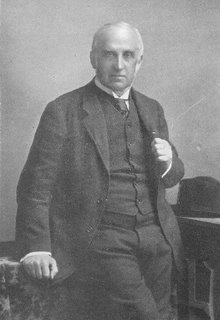

 I visited St Paul’s Cathedral recently and at a service of worship under the great dome I thought of the following story and the truth that it contains.
I visited St Paul’s Cathedral recently and at a service of worship under the great dome I thought of the following story and the truth that it contains.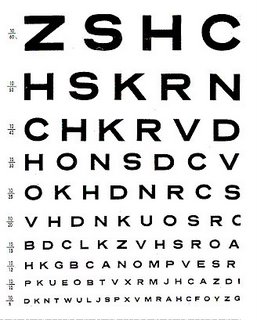
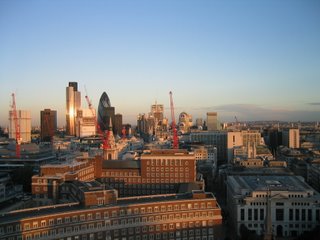 Passionate but One-Eyed
Passionate but One-Eyed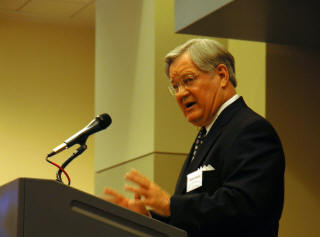
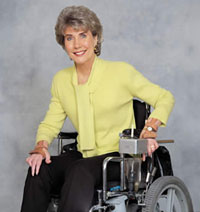 On this American Thanksgiving Day it is good to ponder how people can be thankful even amidst difficult circumstances.
On this American Thanksgiving Day it is good to ponder how people can be thankful even amidst difficult circumstances.
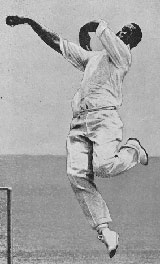
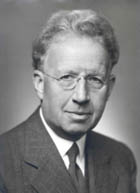 One of the most influential preachers and religious leader of the 20th century was the minister of the Riverside Church in New York, Harry Emerson Fosdick.
One of the most influential preachers and religious leader of the 20th century was the minister of the Riverside Church in New York, Harry Emerson Fosdick.

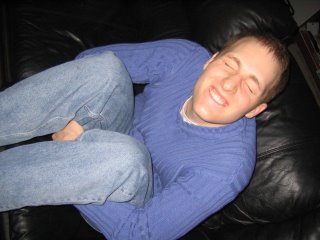

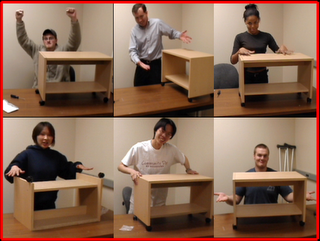 F W Boreham tells this story about the essence of communication:
F W Boreham tells this story about the essence of communication:

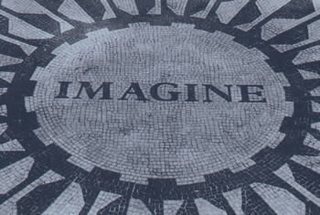 Travelling in New York some years ago, my wife and I spent some hours in Central Park. On our walk we came across three acres dedicated to the memory of John Lennon. They’re called ‘Strawberry Fields’ and they contain plants and trees from more than 100 countries of the world.
Travelling in New York some years ago, my wife and I spent some hours in Central Park. On our walk we came across three acres dedicated to the memory of John Lennon. They’re called ‘Strawberry Fields’ and they contain plants and trees from more than 100 countries of the world.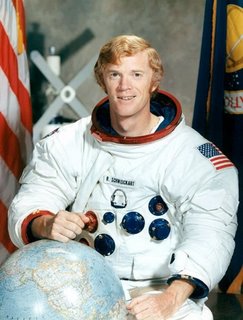 Russell Schweickart was born in New Jersey, 1935 but he became famous as an American astronaut. Following his orbiting of the earth for ten days in March 1969 he wrote this article that invites people to see the world as a whole.
Russell Schweickart was born in New Jersey, 1935 but he became famous as an American astronaut. Following his orbiting of the earth for ten days in March 1969 he wrote this article that invites people to see the world as a whole.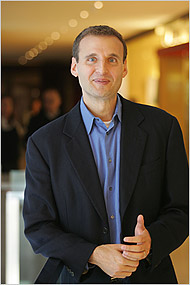
 Geoff Leslie is a pastor in a rural (drought-stricken at the moment) area on the border of Victoria and New Soth Wales in Australia. He and his wife Debbie are great musicians and they put on shows with members of their community in the local halls. Geoff has a way with words and he writes each week for the local paper. Here is one of his recent stories that has just been published.
Geoff Leslie is a pastor in a rural (drought-stricken at the moment) area on the border of Victoria and New Soth Wales in Australia. He and his wife Debbie are great musicians and they put on shows with members of their community in the local halls. Geoff has a way with words and he writes each week for the local paper. Here is one of his recent stories that has just been published.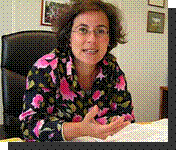
 Author Mark Gerzon has written a fine book that I have been reading on eadership and conflict, as further preparation for seminars and conference addresses I have and am to give on the theme of Managing [he prefers and I do too, the word ‘Transforming’] Conflict. He tells this story that illustrates the way we can easily deny that conflict is happening in our patch:
Author Mark Gerzon has written a fine book that I have been reading on eadership and conflict, as further preparation for seminars and conference addresses I have and am to give on the theme of Managing [he prefers and I do too, the word ‘Transforming’] Conflict. He tells this story that illustrates the way we can easily deny that conflict is happening in our patch: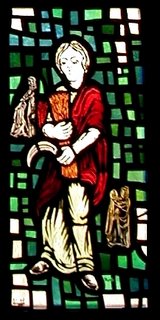 I still remember the vivid impact that the stained glass windows had on me when I worshipped at the Highland Baptist Church in Louisville for several months. This church found that its old, clear windows were cracked and badly in need of replacement. Before surging ahead with swapping the old for the new, same style, the members had a conversation and decided to put in some coloured glass.
I still remember the vivid impact that the stained glass windows had on me when I worshipped at the Highland Baptist Church in Louisville for several months. This church found that its old, clear windows were cracked and badly in need of replacement. Before surging ahead with swapping the old for the new, same style, the members had a conversation and decided to put in some coloured glass. This season of the year and on 1 November the Christian Church is celebrating All Saints day. Writing on the theme of what has been called ‘the communion of the saints’, F W Boreham tells this story:
This season of the year and on 1 November the Christian Church is celebrating All Saints day. Writing on the theme of what has been called ‘the communion of the saints’, F W Boreham tells this story: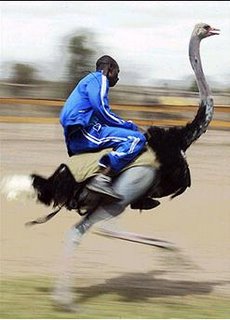 Blogger.Com which hosts this and my other web sites has been having problems of late.
Blogger.Com which hosts this and my other web sites has been having problems of late. It was Al Gore who said: “Airplane travel is nature's way of making you look like your passport photo.”
It was Al Gore who said: “Airplane travel is nature's way of making you look like your passport photo.”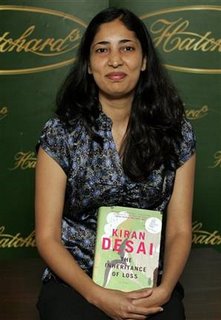 There’s an English idiom that says: “The Devil is in the detail.” By this it is meant that sometimes the small things in our plans and schemes and often the things we overlook are the things that can cause serious us problems.
There’s an English idiom that says: “The Devil is in the detail.” By this it is meant that sometimes the small things in our plans and schemes and often the things we overlook are the things that can cause serious us problems.


 There’s something new on the supermarket shelves in the UAE. We have recently seen the launch of Camelicious—camel milk—which is available now in UAE supermarkets in 250ml, 500ml, 1 litre and 2 litre containers. They have been working on this project for the last 20 years and have now smoothed out all the humps they had encountered in production, manufacturing and marketing.
There’s something new on the supermarket shelves in the UAE. We have recently seen the launch of Camelicious—camel milk—which is available now in UAE supermarkets in 250ml, 500ml, 1 litre and 2 litre containers. They have been working on this project for the last 20 years and have now smoothed out all the humps they had encountered in production, manufacturing and marketing. I usually am stimulated when I read the articles posted on
I usually am stimulated when I read the articles posted on  I am yet to see the popular documentary, An Inconvenient Truth, based on the lecture by former US Vice President Al Gore about global warning, but on a flight to SE Asia this week I read an interesting article about its origins.
I am yet to see the popular documentary, An Inconvenient Truth, based on the lecture by former US Vice President Al Gore about global warning, but on a flight to SE Asia this week I read an interesting article about its origins.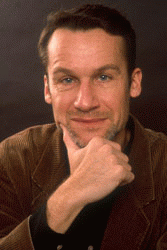 The Russian novelist, Andrei Makine, has lived in France since the1980’s and writes superbly about the Stalin era and its aftermath.
The Russian novelist, Andrei Makine, has lived in France since the1980’s and writes superbly about the Stalin era and its aftermath.
 In Toni Morrison’s book, Beloved, there is this poignant statement about the central character:
In Toni Morrison’s book, Beloved, there is this poignant statement about the central character:


